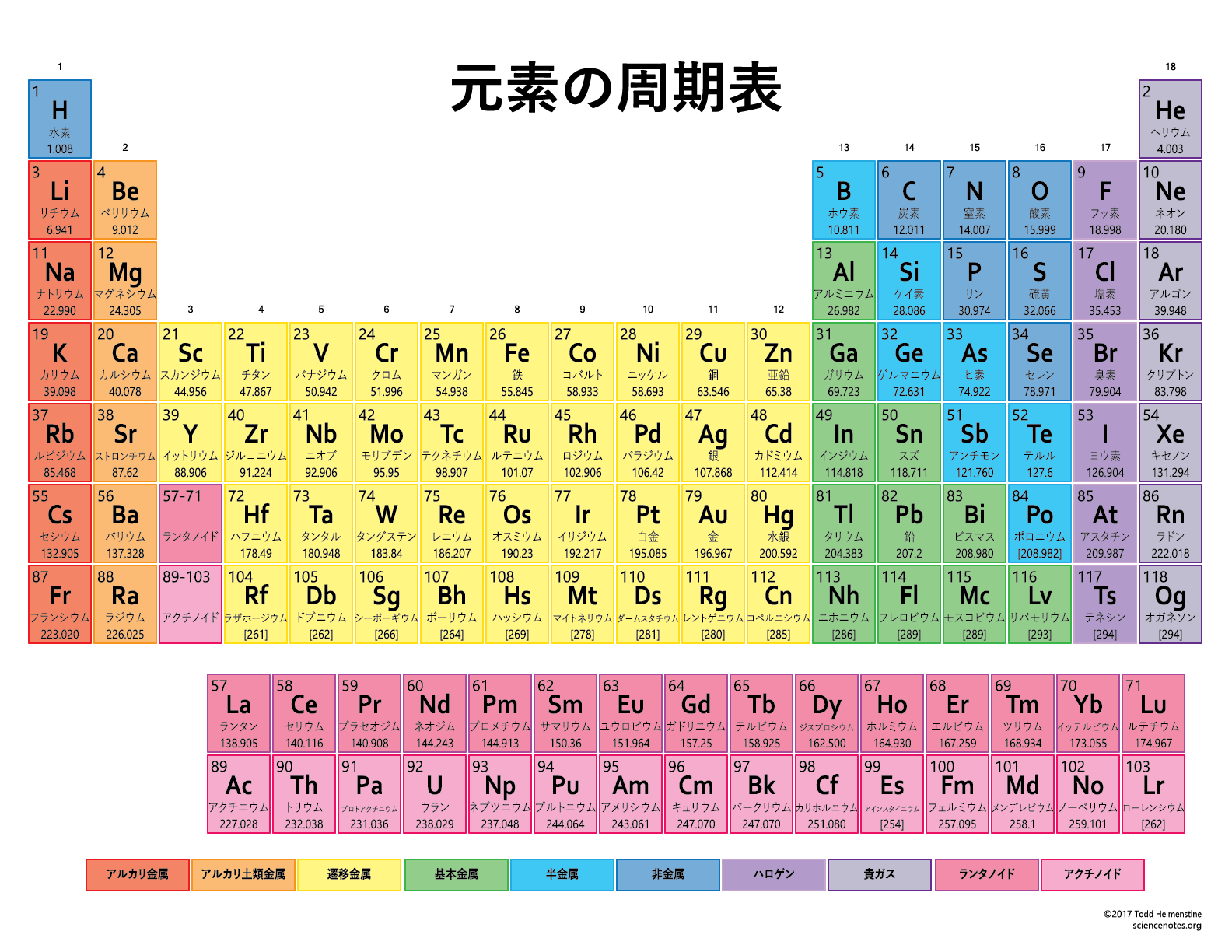Japanese periodic table versus Chinese periodic table
[This is a guest post by Conal Boyce.]
As they say, "a picture is worth a thousand words." Here are two pictures, copy/pasted from Google Images: First, the Japanese periodic table, then the Chinese periodic table. I apologize for the tiny font, but notice how, in the Japanese periodic table, the symbol 'S' has the word for sulfur (硫黄) under it. That pair of kanji, Romanized as iō, is simply an annotation of the international symbol, S, not meant to 'compete with' S. (Glance also at the very long katakana items that appear elsewhere, e.g., for the element Sc or Mt. The nuance that I'm driving at will become clear after you compare the Chinese periodic table further down, and see how S, Sc, and Mt are handled there. No need to know any Chinese or Japanese at all to see what's afoot here.)

(source)
Read the rest of this entry »